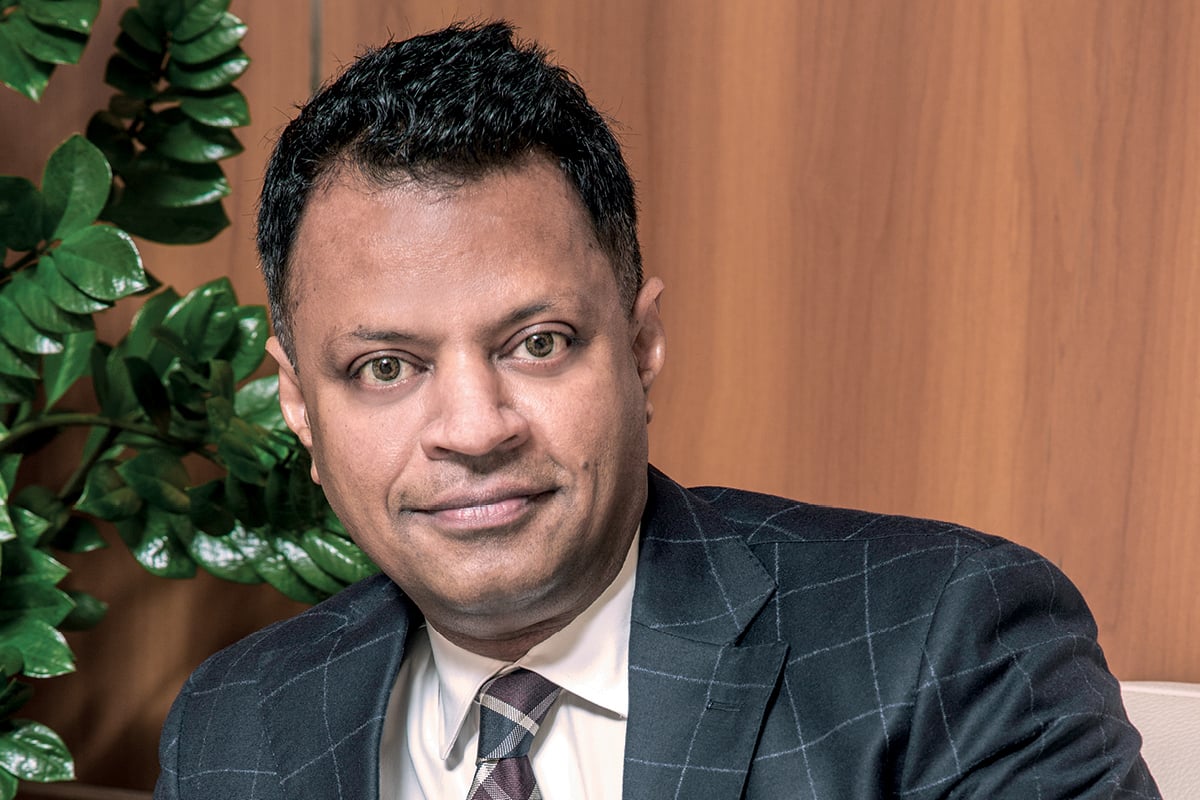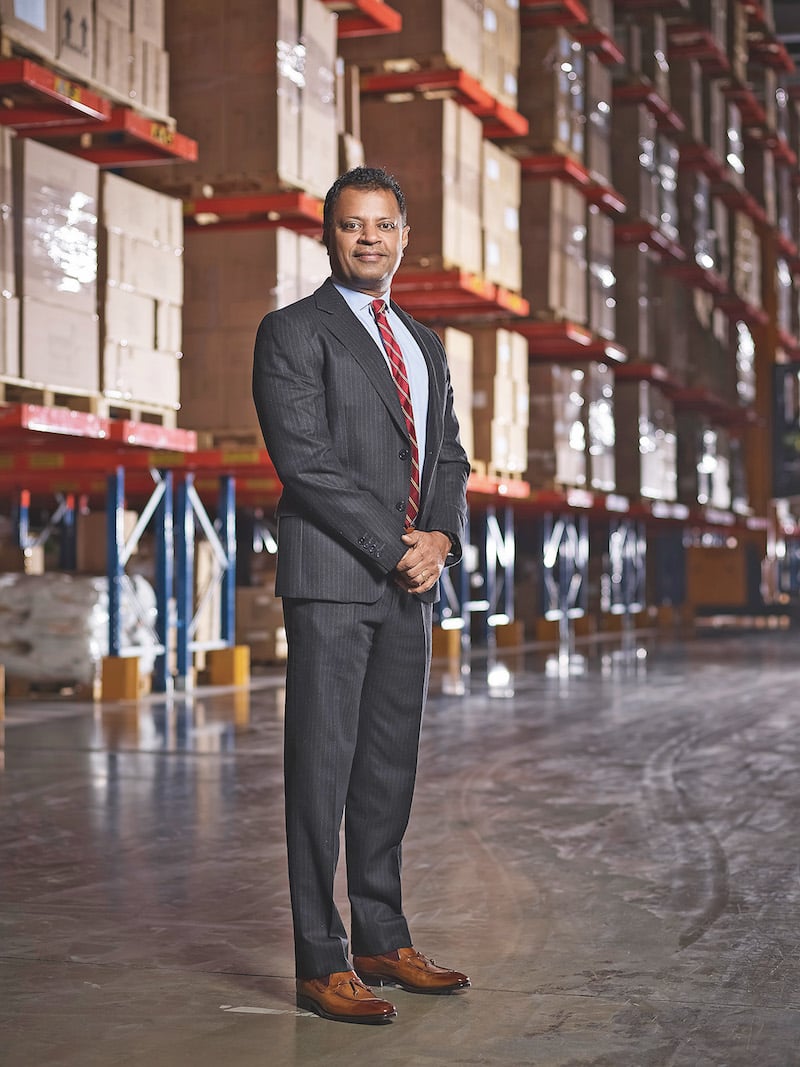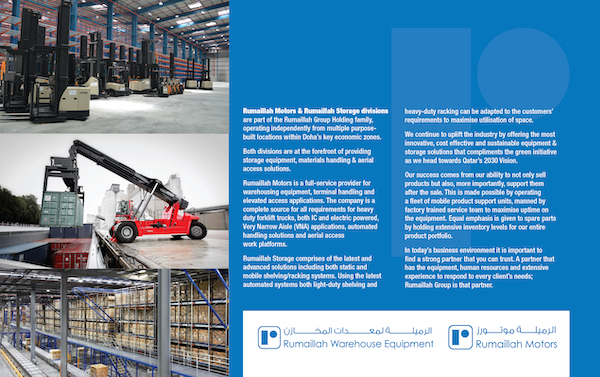Gulf Warehousing Company (GWC), led by Group CEO Ranjeev Menon, has grown to become the largest one-stop logistics and supply chain service provider in the GCC and beyond, offering more than three million square metres of logistics infrastructure along with other varied supply chain capabilities.

Ranjeev believes GWC has a story to tell: one of organic growth, expansion and relationships. Ten years ago, the leader saw endless opportunities for growth in the logistics space, especially in the oil and gas industry. So, when an opportunity opened up at GWC, he did not hesitate.
Armed with a Master of Business in Supply Chain and Logistics Management from RMIT University in Melbourne and with more than 25 years’ industry experience, Ranjeev’s portfolio highlights his confidence with leadership positions at companies of prestige such as MESCO, DHL and Agility in the UAE and Qatar.
In 2009, when Ranjeev joined GWC, the project logistics scene was very vibrant, he says, with many expansions taking place in Qatar’s industrial city Ras Laffan. “We understood that there was a gap between what the customer wanted in terms of logistics and what the market offered,” he says. “We wanted to seize this opportunity and bridge the gap between what the customer wanted and what was available.”
GWC recorded 10% growth in net profits at the end of June 2019. Over its 15 years of operation, the company’s growth can also be measured by its geographical spread, starting with a warehouse that was almost 30,000 square metres, to operating three logistics hubs – the Logistics Village Qatar, the GWC Bu Sulba Warehousing Park, and the Bu Fasseela Warehousing Park – all forming part of its three million square metres of logistics infrastructure in Qatar.
Furthermore, there are five warehouses located in thriving industrial areas, and two of them provide chilled, frozen and temperature-controlled zones for the food industry.
Throughout the years, the company has expanded its logistics and warehousing services to include the storage of hazardous chemicals at Ras Laffan and Messaieed for the oil and gas industry. These storage spaces were the “first ISO-certified and government approved chemical storage and distribution facilities” able to service third parties, by providing segregation of chemicals.
GWC has also implemented records management solutions, which include the migration of documents for industries including banks, ministries, multinational organisations and local enterprises. It owns about 90% of the records management market share in Qatar.
Another part of its portfolio is a sports and events logistics service, which includes freight, setup and transportation for event equipment. More recently, the company introduced fine art transportation, which involves packing and transporting valuable museum items and artworks, and then installing them in Qatar museums, as well as the transportation of equestrian assets.

In the next three to five years, Ranjeev sees the company growing organically, while also actively expanding its available services. “We’re building up services around sports logistics,” he confirms. “We’re also looking at inorganic expansion when the opportunity is right for us.”
Company culture is something that Ranjeev and his team value as important. “One thing I want to very proudly say is that the culture of GWC is a stand-out feature of the company,” he says. “We have a very entrepreneurial spirit within the organisation. People who contribute to the organisation are rewarded and recognised for their efforts.” He adds: “Our employees see this as a place where they can come and build their careers.”
“We have a very entrepreneurial spirit within the organisation.”
Over the next 12 to 18 months, technological advancement is an important area that GWC will explore as it moves towards automation. “We are trying to determine the technological additions that best suit our organisation,” he says. “This is an evolving phase for us, and we’re looking to decide what to automate to deliver the maximum value to our operation.”
Ranjeev explains that some GWC warehouse operations have gone “completely seamless and paperless”, with operators picking and dispatching items by following voice commands. “We’re looking at various options of autonomous vehicles we can deploy within the warehouses to pick and put away pallets and products,” he says.
Having complete control over the supply chain is one of GWC’s differentiating attributes and a contributor to its success, along with its focus on in-house training. According to Ranjeev, everything at GWC is carried out in-house and all aspects of the supply chain are controlled, with nothing outsourced.
“We’re an asset-based company and we firmly believe in having complete control over the supply chain of every client and the operations that we handle,” he says. The supply chain tool that GWC relies on gives the company complete visibility of what is happening and how the chain is progressing. “Visibility is a crucial aspect of managing the entire supply chain,” Ranjeev adds.
“People see this is a place where they can come and build their careers.”
GWC’s supplier relationships are also significant to the company’s growth, success and ultimately its takeover of the marketplace. Ranjeev shares an observation he has made through experience: “The more you embrace your suppliers, the more value you will get back from them. Forming good relationships with our strategic suppliers has increased the value we receive from them.”
The suppliers provide services such as freight forwarding, which involves moving goods in and out of Doha. “We have invested and developed extensive infrastructure that contributes to the success of the business in Qatar,” Ranjeev says.
“With integrated supply chain and logistics services, we are able to cater to every industry vertical that we touch base with.”
Proudly supported by:



